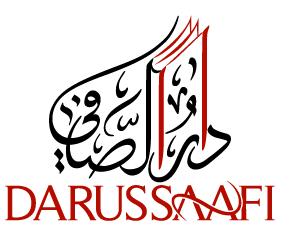Question: A custom has emerged recently with some Friday Khateebs in the masaajid that they say at the end of the first part of the Khutbah: “I say what you have heard. If it is good then it is from Allah and whatever is other than that, then it is from myself and Shaytan“. So is this statement correct? Along with the fact that they convey the texts of the Quran and Sunnah in most of the khutbah. We hope from you some guidance in this regard from what we are accustomed to of clarification and advice. [from you]. Jazakallahu Khairan.
Answer: “All praise is due to Allah alone and may Peace and Blessings be upon the one whom there will be no Prophet after him. As for what follows:
Verily I see that the ending the Khutbah by saying: “If it is good then it is from Allah and whatever is other than that then it is from myself and Shaytan” is a phrase which has come in some introductions of books or at its end. It is done by some writers in regards to rulings which have a lot of ijtihaad from which ensues decisions and inferences which a mistake can occur in narration or opinion. So this phrase is used out of humility and protection from praising what they have wrote. And these works are long and it is possible for mistakes to be in it. As for a khutbah and the likes, then it is an admonishment and guidance based on the Prophetic Ahaadith and verses of Quran. There is no itjihaad from the Khateeb which is pure opinion. This is considering majority of it. And there are khutabah who place in their sermons issues of differences of opinion and there is ijtihaad in it. So like that, it is not obligatory to end the khutbah with the likes of his phrase which is necessary which leads many of the listeners to not have confidence in the khateeb because the layman will understand that the khateb is not reliable in what he says. So like that: I say that it is not necessary to end the khutbah with this mentioned phrase. Rather he suffices with supplication like:
اللهم أرنا الحق حقا وارزقنا اتباعه، وأرنا الباطل باطلا وارزقنا اجتنابه
ولا تجعله ملتبسا علينا فنضل
Oh Allah allow us to see truth as truth and allow us to follow it
And see falsehood as falsehood and allow us to avoid it
And do not make it [truth] unclear to us so that we become misguided
And the likes: we ask Allah to benefit us by His Book and the Sunnah of the Prophet (ﷺ) and to guide us to the straight path. And the likes of those supplications. And it is appropriate to mention what Shaikhul-Islaam Ibn Taymiyyah rahimahullah said: “So like this, if the Companions used to speak with their personal judgments (ijtihaad), they would transcend the Legislation of the Messenger (ﷺ) from their mistakes and the mistake of other than them. As Ibn Masud radiallahu anhu said in his judgement: “I say my opinion and if it is correct then it is from Allah and if it is mistaken it is from me and Shaytan and Allah and His Messenger are free from it. Likewise, it was reported from as-Sadeeq radiallahu anhu that he said that about the Al-Kalalah (those who leave neither descendants nor ascendants as heirs). Like that, it was reported on the authority of Umar in some issues” al-Fatawah al-Kubra (3/302) and Allah Knows Best”.
Written by
Abdur-rahman ibn Nasir al-Barrak
25 Dhul-Qa’adah 1436
Translated by
Faisal Ibn Abdul Qaadir Ibn Hassan
Abu Sulaymaan

